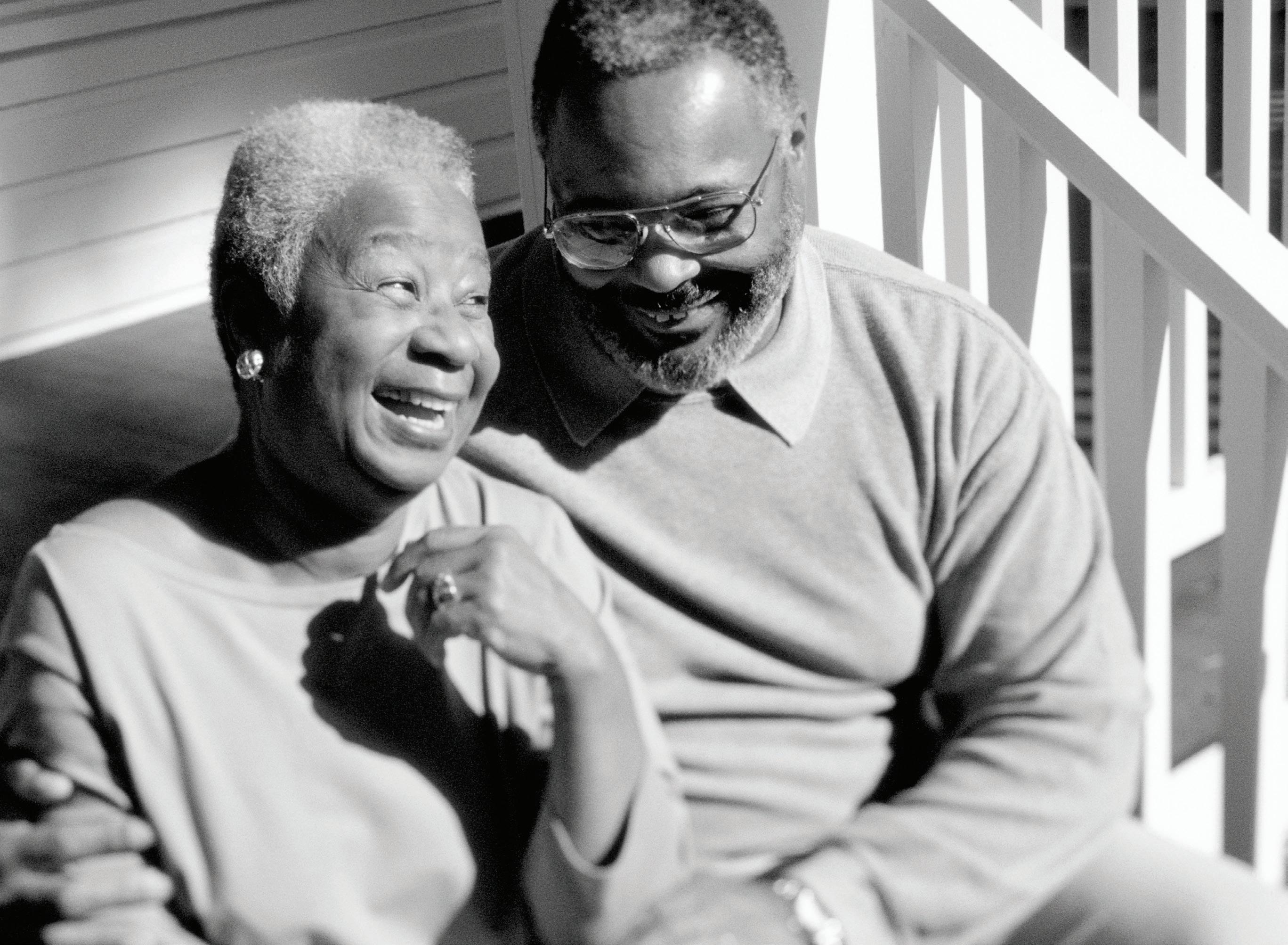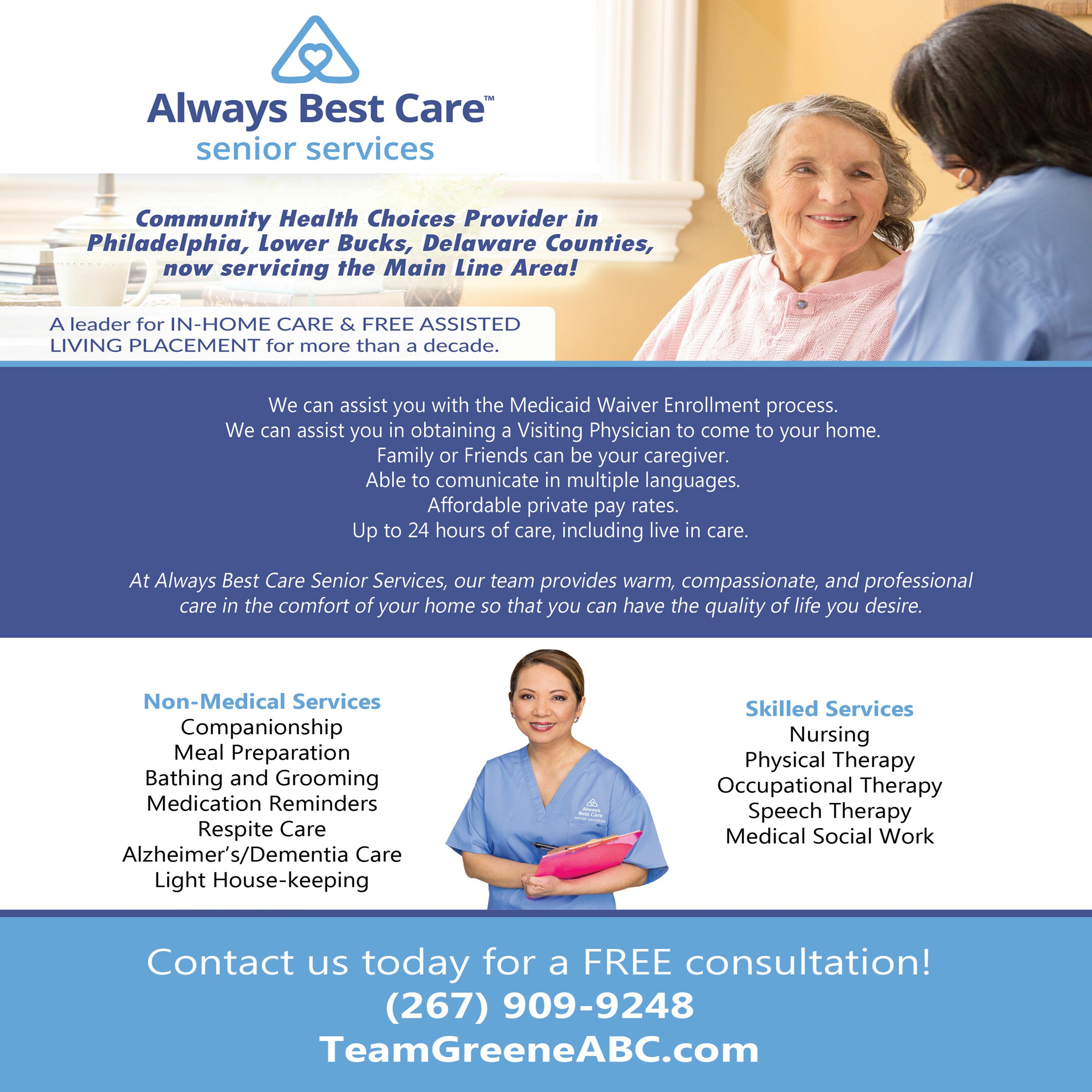

Navigating the caregiving journey with growth, love, community — and support
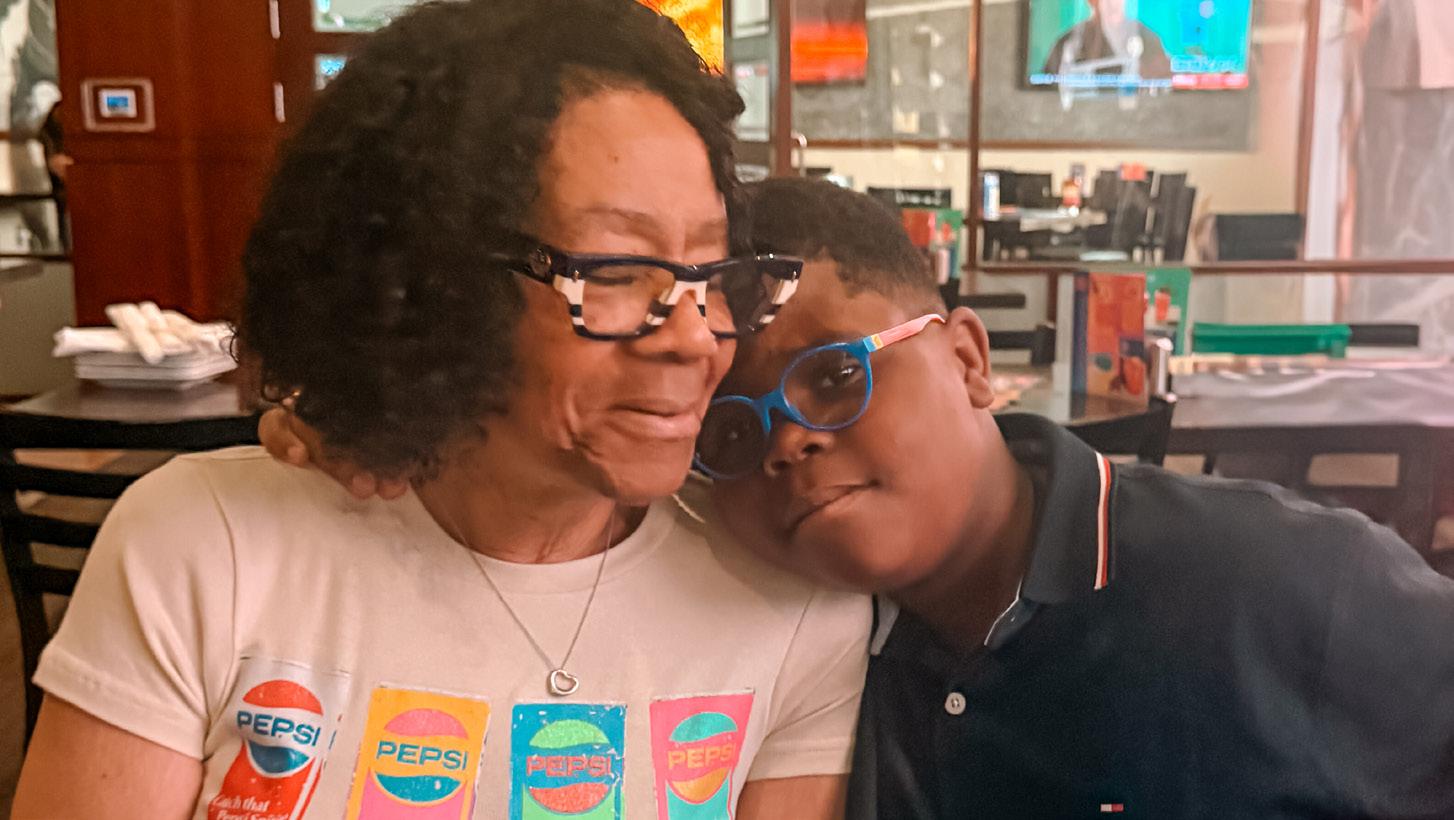
By Bill Conallen
When Cheryl Clark talks about caregiving, it isn’t just from professional knowledge. It’s personal, too. As the director of Philadelphia Corporation for Aging’s (PCA’s) Caregiver Support Program, Clark understands the importance of caregivers to their families and communities. She is committed to making sure caregivers are fully supported.
“Support programs for caregivers are a lifeline for people who take on the demanding role of caregiving,” Clark said. “At the center of these programs is education and training. Caregivers learn the skills they need to give the best care possible. This helps the person receiving care and gives caregivers the confidence to handle different situations.”
Caregiving requires an incredible amount of love, growth and patience. That’s why all caregivers need both practical help and emotional support. PCA’s Caregiver Support Program (CSP) was created to provide multi-faceted support.
lives.”
Every November, during National Family Caregivers Month, PCA highlights caregivers and their contributions. But Davies stressed that support should last all year, not just when it is observed.
care manager is especially meaningful. “When I reached out, they responded quickly and made me feel like I could handle things again,” Williams said. “Just hearing someone say, ‘We’re here for you,’ meant the world.”
The program offers education, training, respite care, financial assistance, benefits counseling and support groups. CSP serves caregivers of older adults, as well as older adults who are caregivers of others. It also supports older adults who are raising grandchildren or other young relatives, a group that continues to grow in Philadelphia.
“Being a caregiver takes a huge amount of time and energy,” Clark said. “It’s important that caregivers have as many resources as possible, not only to care for their loved ones but also to take care of themselves.”
For Care Manager Carolyn Davies, who works directly with caregivers, the difference these services make is clear. “I’ve seen caregivers come to us completely overwhelmed, not knowing how they will get through another day,” Davis said. “With the Caregiver Support Program, they start to breathe again. Whether it’s rest time, financial help for supplies, or just knowing someone understands, the support can truly change
For caregivers, like 68-year-old Celeste Williams, the program has made a lasting difference. At first, she struggled to balance her own responsibilities with the constant demands of caring for her 8-yearold grandson, Avery. Between managing medical appointments, preparing meals, and keeping up with household tasks, there were moments when it felt overwhelming.
“There were days when I felt completely overwhelmed,” Williams said. “I didn’t know how I was going to manage everything.”
Caregivers often face difficult choices. These can include whether to take time off from work to help a loved one or how to pay for supplies and equipment. Many also experience isolation. Caregiving can leave little time for social activities or personal rest. That’s why programs, like CSP, are so vital. They connect caregivers with both resources and community support.
After connecting with PCA’s Caregiver Support Program, things began to improve for Williams. The program provides both practical assistance and emotional relief.
“Having help with supplies, or even just a break to rest, made such a difference,” Williams said. “But even more than that, it gave me peace of mind to know I wasn’t alone.”
The reassurance of a supportive
Through support groups and educational workshops, caregivers also gain the chance to learn from others who understand their journey. These connections help them feel less isolated and more confident in their role. For many, it is the first time they realize there is a whole network of people and organizations ready to stand behind them.
PCA’s program is more than a list of services. It is a partnership in one of life’s most demanding roles. “This program gave me strength and reminded me I could keep going for my loved one,” Williams said.
Clark and Davies see stories like this every day. They know that caregiving requires patience, energy and resilience — and that no one should have to do it alone. “Every day is about honoring caregivers,” Davies said. “Our goal is to make sure they feel supported, valued and ready for the challenges of this role.”
For anyone caring for loved ones with illnesses, disabilities or age-related needs, PCA’s Caregiver Support Program provides help and hope. It’s a reminder that resilience is stronger when support is close.
Caregivers interested in services can contact the PCA Helpline at 215-765-9040 or visit pcaCares.org/ caregivers.
Bill Conallen is the public relations specialist at Philadelphia Corporation for Aging.
Celeste Williams, 68, receives assistance from PCA’s Caregiver Support Program to help raise her 8-year-old grandson, Avery.
Support for Philadelphia’s caregivers
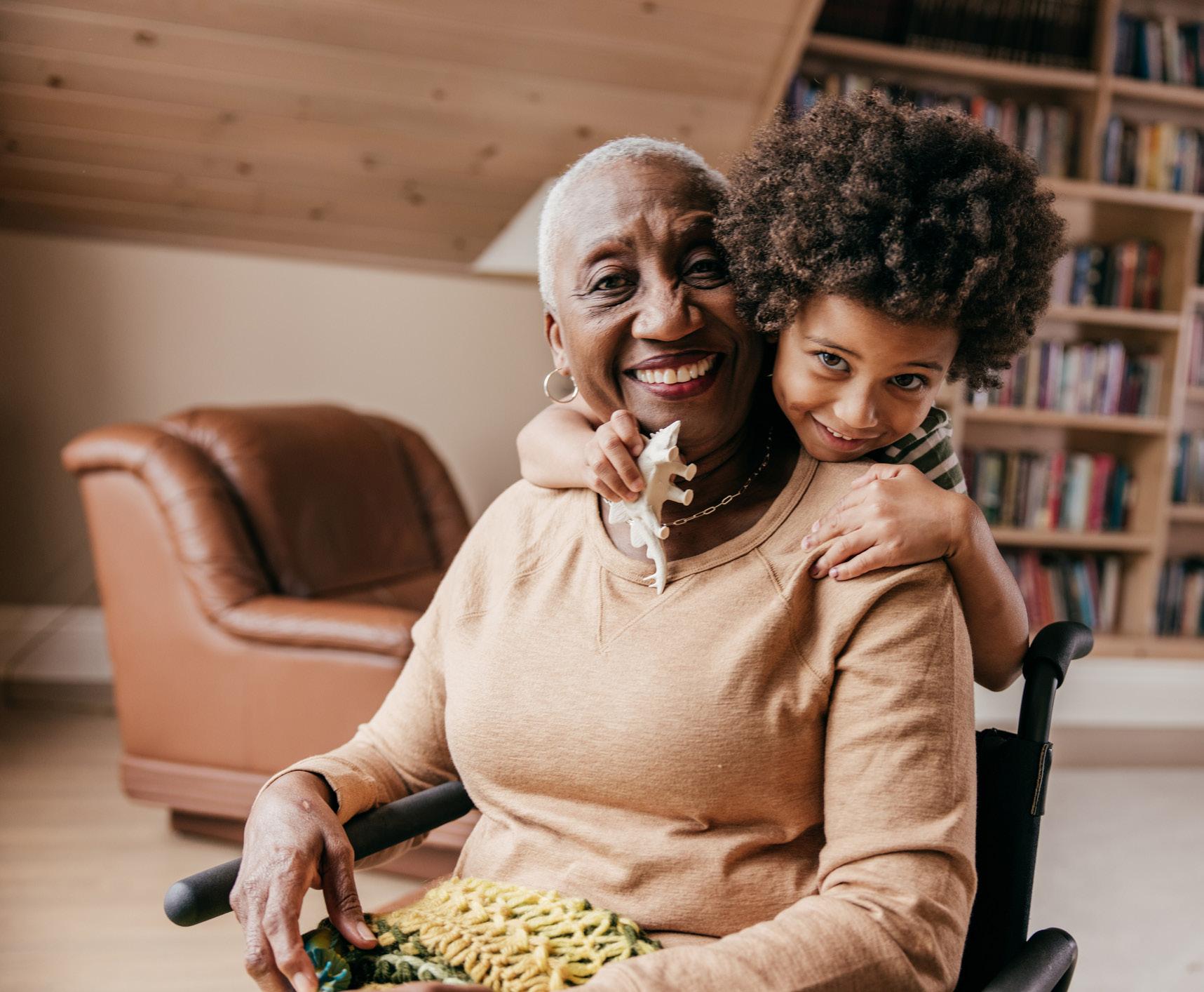
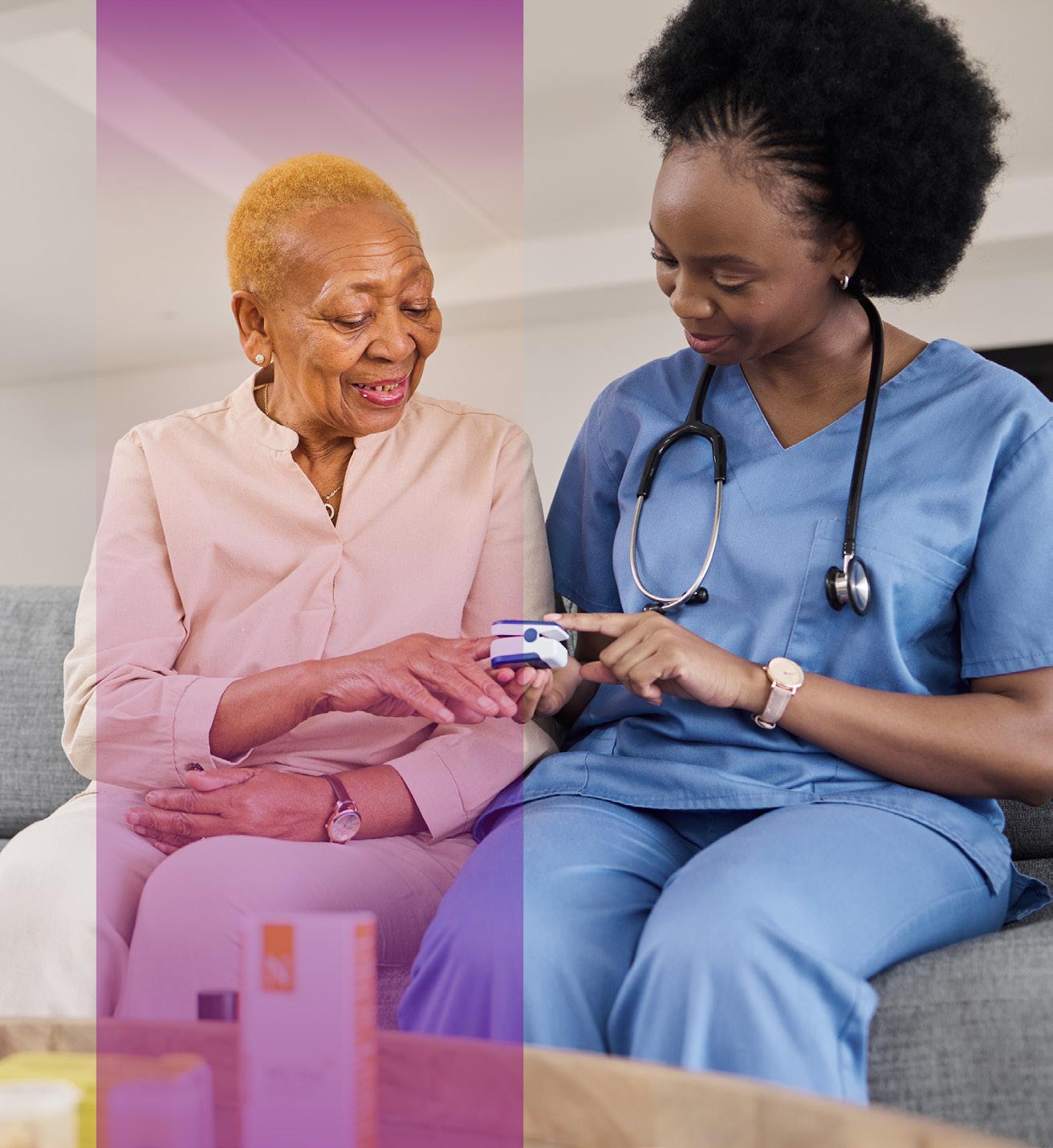
Philadelphia Corporation for Aging’s (PCA’s) Caregiver Support Program offers a wide range of assistance to help caregivers balance their responsibilities and personal well-being. Services include:
• Respite care.
• Adult day programs.
• Benefits counseling.
• Caregiver training.
• Financial assistance.
The program is available to:
• Adults 18 and older caring for someone 60-plus with dementia or other needs.
• Adults 55 and older caring for a relative younger than 18.
• Adults 55 and older caring for
a relative, age 18-59, with a disability.
Qualified caregivers may receive up to $600 per month to offset caregiving expenses. They can also receive up to $5,000 in home modifications or assistive devices.
The program seeks to ease the challenges of caregiving while ensuring caregivers have the resources to care for themselves.
For details about eligibility and available supports, call the PCA Helpline at 215-765-9040 or visit www.pcaCares.org/caregivers.
We listen first, then bring the right care to you. We help seniors stay safe and independent, all while receiving medical and social support services at our wellness center. At Mercy LIFE, empathy leads the way and experience gets you where you want to be.
Contact us to learn if you or a loved one qualifies. Call 215-339-4747 or visit mercylife.org.
Tips on when to begin collecting Social Security benefits

By Jay Nachman
With retirement, disability and survivor’s benefits, Social Security is one of the most successful anti-poverty programs in the nation’s history. The Social Security Act provides a federally administered system of social insurance for older adults. Social Security is financed through payroll taxes paid by employees and their employers. The act was signed by President Franklin Roosevelt in 1935. Taxes were collected for the first time in January 1937. The first one-time, lump-sum payments were made that same month. Regular ongoing monthly benefits started in January 1940.
Older adults can start receiving Social Security retirement benefits as early as age 62. However, the benefit amount will be reduced by a small percentage for each month if collection starts before full retirement age. For those born after
Something else that people may not realize is that if “you are widowed and earning less than $23,400 a year or not working, you could qualify for the survivor benefit as early as age 60,” said Garnek, who works out of Bala Cynwyd, holds a National Social Security Advisor designation and is the Social Security specialist for Beacon Pointe Advisors, a nationwide financial registered investment advisory firm.
Social Security deducts premiums from the checks of people who are covered by the health plan.
Garnek recommends that Social Security recipients have federal taxes withheld from their checks. Anyone with an income of more than $34,000 for a single person or $44,000 for a married couple pays federal tax on 85% of their Social Security benefit.
1960, full retirement age is 67. If someone delays taking benefits past full retirement age, the benefit amount will increase by 8% for each year they delay collection. The maximum retirement age is 70.
When to begin collecting Social Security varies for everyone, according to experts. Certified financial planner Alisa Garnek has advice for couples.
“If you are part of a couple, it is a two-part decision, and you shouldn’t just think about yourself,” she said. “What’s important to realize is that when one person passes away, the other one may be eligible for a survivor benefit. I recommend for the higher earner of the couple to wait longer to collect so their benefit is higher. Not only will they receive a higher benefit while they’re living, but ultimately they will pass along that higher benefit to their spouse once they pass away.”
As to when to begin taking Social Security benefits, Garnek notes, “the longer you wait, the bigger your benefit will be.” When a person begins taking Social Security early, they take a permanent reduction in benefits. By collecting at age 62, the benefit amount will be 30% less than at full-retirement age of 67.
“If a person needs the money, for example, because they use credit card debt to cover expenses, then it makes sense to collect early,” Garnek said.
Unlike other retirement investments, Social Security is “inflation protected,” Garnek said. Social Security provides a costof-living adjustment (COLA) to all those currently collecting, as well as to those 62 and older who will begin collecting in the future.
For recipients of Medicare Part B,
“I like for people to have federal tax directly withheld from their Social Security payments so they don’t potentially receive an underpayment penalty when tax time comes around,” Garnek said.
The Social Security website, www.ssa.gov, which is also available in Spanish, has links for visitors to check their eligibility for Social Security benefits and has answers to other questions.
(See page 15 for crossword)
Jay Nachman is a freelance writer in Philadelphia who tells stories for a variety of clients.
Please help older Philadelphians in need this winter by donating to the Emergency Fund today

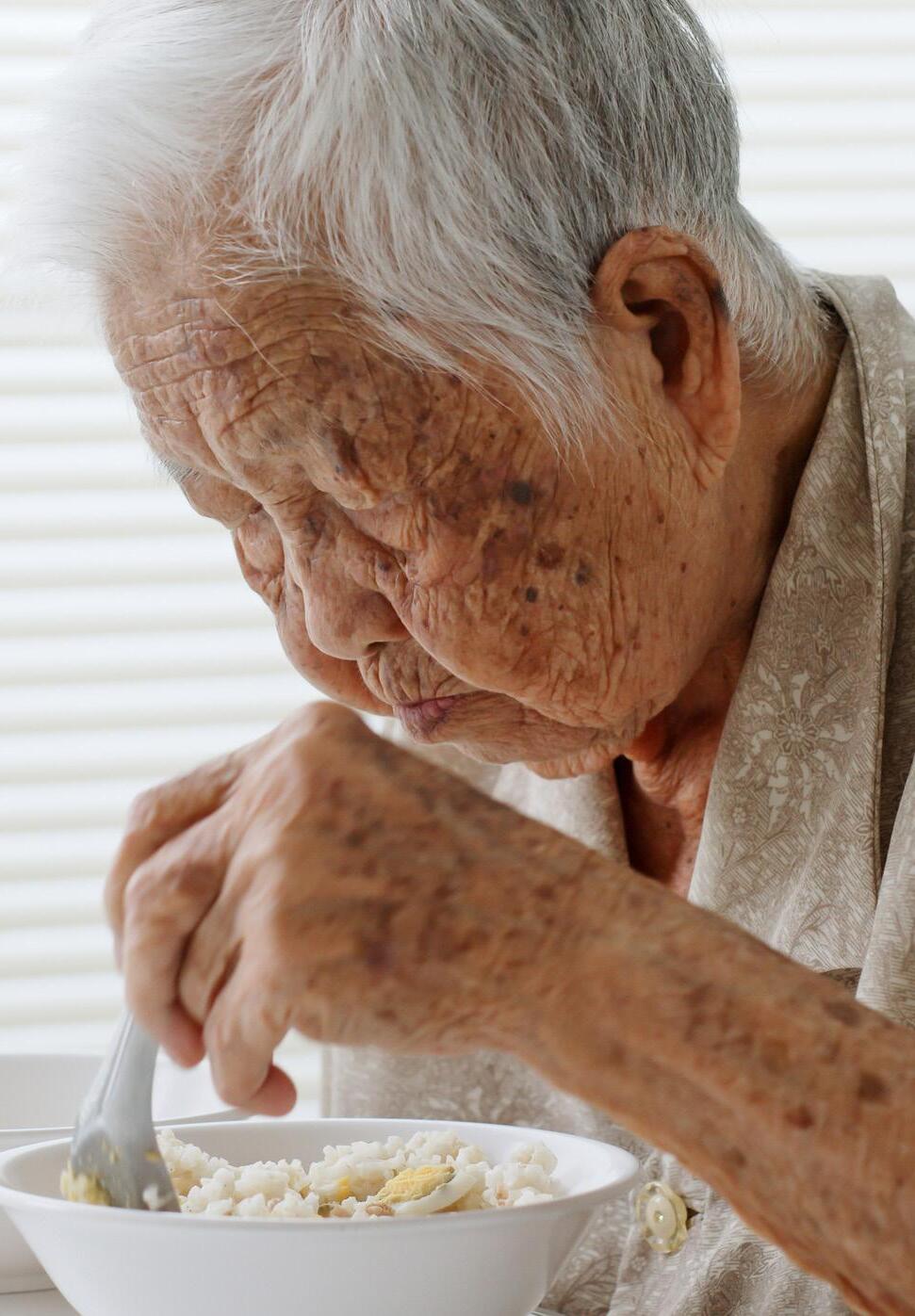
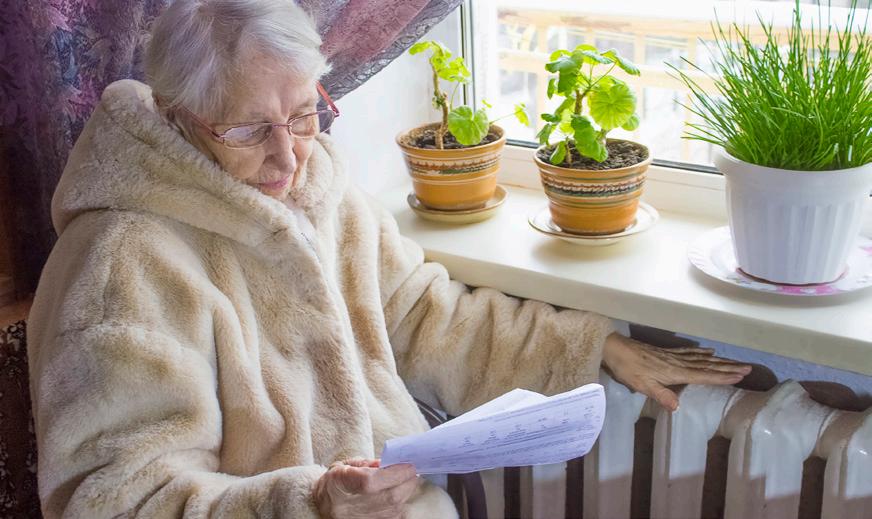

Many older Philadelphians are often forced to choose between paying for medicine, food, or heat. With your help, they won’t have to make that difficult choice. The Emergency Fund for Older Philadelphians seeks to reduce suffering by providing small grants to individuals in dire situations. Anyone 60 years or over on a fixed income, who is facing a crisis, can request 100 gallons of heating oil or $150 for an immediate need once a year. Funds can be used for food, clothing to stay warm, urgent repairs to keep their home safe, to avoid a utility shut-off, vital medications, or other essential expenses. Your donation can make a meaningful difference to their lives. Please give to the Emergency Fund today.
I want to help older adults to stay nourished and warm this winter. Please return this coupon with your check or make your donation online at pcacares.org/emergencyfund
$1,000 will provide seasonal clothing for 10 older Philadelphians
$500 provides $50 worth of food to 10 older adults
$300 provides 60 gallons of home heating oil
$100 helps prevent a utility shutoff
o Enclosed is my check payable to: The Emergency Fund, PCA, Planning Dept., 642 N. Broad St., Philadelphia PA 19130 o Charge my o VISA o MC o AMEX o DISCOVER
Events
November 2025
THIS MONTH:
• FAMILY CAREGIVERS MONTH
• NOV. 4: ELECTION DAY
• NOV. 11: VETERANS DAY
• NOV. 27: THANKSGIVING
NOVEMBER 3
MAT YOGA
Blends physical poses, breathwork & meditation. Designed for people to become more in touch with their bodies. 4 p.m. Lutheran Settlement House. 215-426-8610 | Free
NOVEMBER 5
VETERANS DAY CONCERT
Special performance in honor of the late Philip Spector. 1 p.m. KleinLife: Northeast Philadelphia. 215-698-7300 | Free
NOV. 6 TO DEC. 5
MATTER OF BALANCE
Participants set personal goals for increasing activity & make practical changes to reduce fall risks at home & improve balance. 1 p.m. on Thursdays & Fridays. Philadelphia Senior Center – Avenue of the Arts. 215546-5879 | Free
NOVEMBER 7
AMERICAN SIGN LANGUAGE CLASS
Learn the basics of ASL to help build communication skills while fostering inclusivity & connection. 9:30 a.m. Martin Luther King Older Adult Center. 215-685-2715 | Free
Send your calendar items two months in advance to: MilestonesNews@pcaCares.org Questions? Call 267-507-2168.
NOV. 10 TO DEC. 8
AMERICA’S FIRST LADIES
Learn about their lives & discover their strengths, weaknesses, joys & sorrows. 12:30 p.m. KleinLife: Northeast Philadelphia. 215-698-7300 | $30/5 sessions
NOVEMBER 12
BINGO
Try your luck, enjoy friendly competition, & connect with others in a lively atmosphere. 12:30 p.m. Philadelphia Senior Center – Avenue of the Arts. 215-546-5879 | Free
NOVEMBER 13
COMPUTER CLASS
Learn computer & internet basics. 9 a.m. Lutheran Settlement House. 215-426-8610 | Free
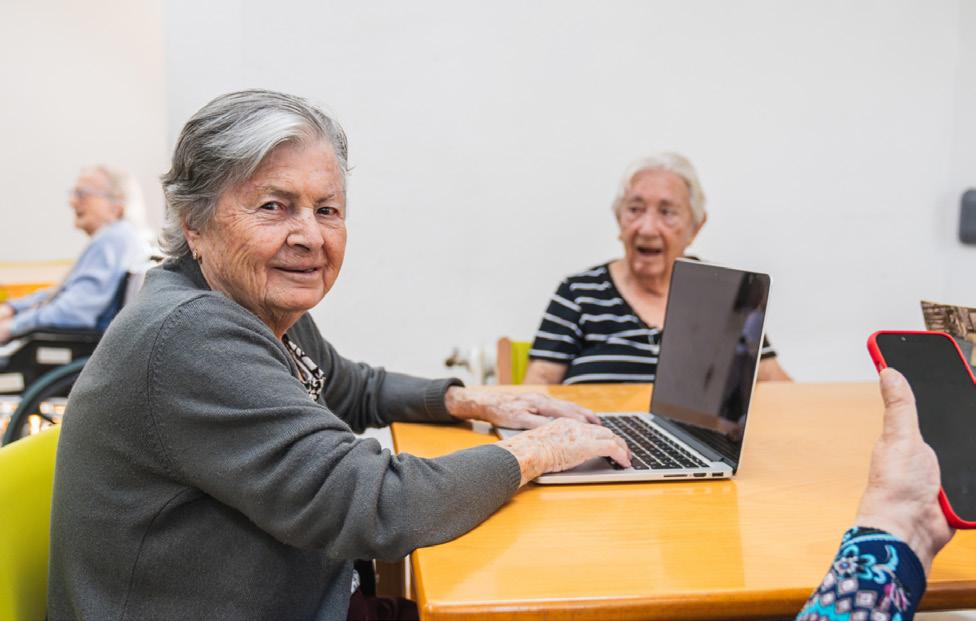
NOVEMBER 17
SING-ALONG
Share the joy of music with others. 10 a.m. Center in the Park. 215-848-7722 | Free
NOVEMBER 18
POTTERY CLASS
Learn to create unique handmade objects & explore a variety of molds. 10 a.m. Philadelphia Senior Center – Allegheny. 267-2861455 | $3
NOVEMBER 19
BRAIN HEALTH
Boost cognitive health through stimulating activities & discussions. Noon. Center in the Park. 215-848-7722 | Free

NOVEMER 20
WORKSHOP FOR CAREGIVERS
The Caregiver Support Program presents information, resources & tips for caregivers. Includes lunch & free parking. 9:30 a.m. to 1:30 p.m. @ PCA. Register: 445240-1832 | Free
NOVEMBER 20
COLORING BEYOND THE LINES
Relax with this fun adult coloring group that inspires creativity. 10 a.m. Center in the Park. 215-848-7722 | Free
NOVEMBER 21
CHESS CLUB
Learn, practice & enjoy the game with friendly matches & strategy building. 12-4 p.m. Martin Luther King Older Adult Center. 215-685-2715 | Free
NOVEMBER 24
TLC SUPPORT GROUP
Confidential discussions, led by a social worker, offering suggestions for coping with issues of today. 10 a.m. Philadelphia Senior Center – Avenue of the Arts. 215-546-5879 | Free
NOVEMBER 25
THANKSGIVING LUNCHEON
Be thankful among friends. Share a feast, with all the trimmings, then enjoy entertainment. 11:30 a.m. KleinLife: Northeast Philadelphia. 215-698-7300 | Free

NOVEMBER 26
FITNESS CLASS
Full-body workout, with both standing & seated moves. Uses lightweight handheld exercise equipment. 10 a.m. Philadelphia Senior Center – Allegheny. 267-286-1455 | $1
NOVEMBER 28
MINDFUL MINIS
A community wellness manager will lead short sessions to help manage stress. The sessions include guided meditation, breathwork, body-scans & discussion. Noon. Lutheran Settlement House. 215-426-8610 | Free
Philadelphia City Council recognizes senior centers
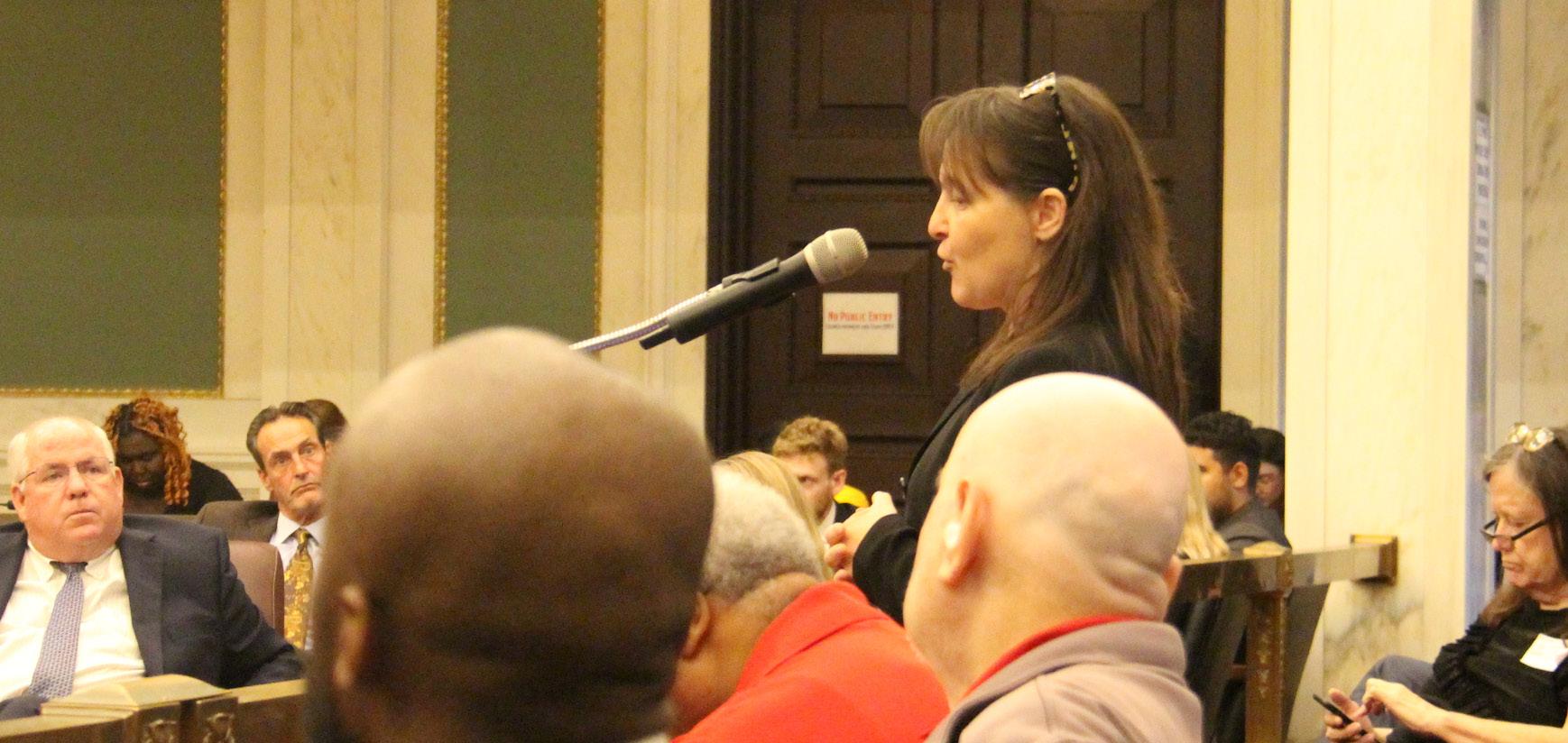
On September 26, the Philadelphia City Council approved a resolution to recognize the importance of supporting older adults in Philadelphia. Councilmembers Kendra Brooks and Nicolas O’ Rourke championed the effort. It was strongly supported by Philadelphia Corporation for Aging (PCA).
Community leaders and older adults provided testimony. They spoke about the issues they face and the ways senior centers help. These personal stories highlighted challenges and opportunities facing older Philadelphians.
Speakers included:
• Laura Weinbaum, PCA’s chief operating officer (pictured)
• Esther Lee, PCA’s assistant director of community engagement
• Ruth Holland, member of Northern Living Center
• Alice Hunt, member of Firehouse Active Adult Center
Testimony highlighted important topics, including:
• Finding safe and affordable housing.
• The challenges of caregiving.
• How community centers and support programs help older adults.
Members of senior centers spoke with emotion and pride. They showed how older adults can stand up for their needs and make a difference in their communities.
Before the meeting, participants met with Councilmember Brooks to take photos and talk. This showed the strong connection between elected leaders, advocates, and older adults.
Passing this resolution is an important step toward improving services and policies that affect older adults in the city.
Judith Robinson has tales to tell about North Philadelphia history
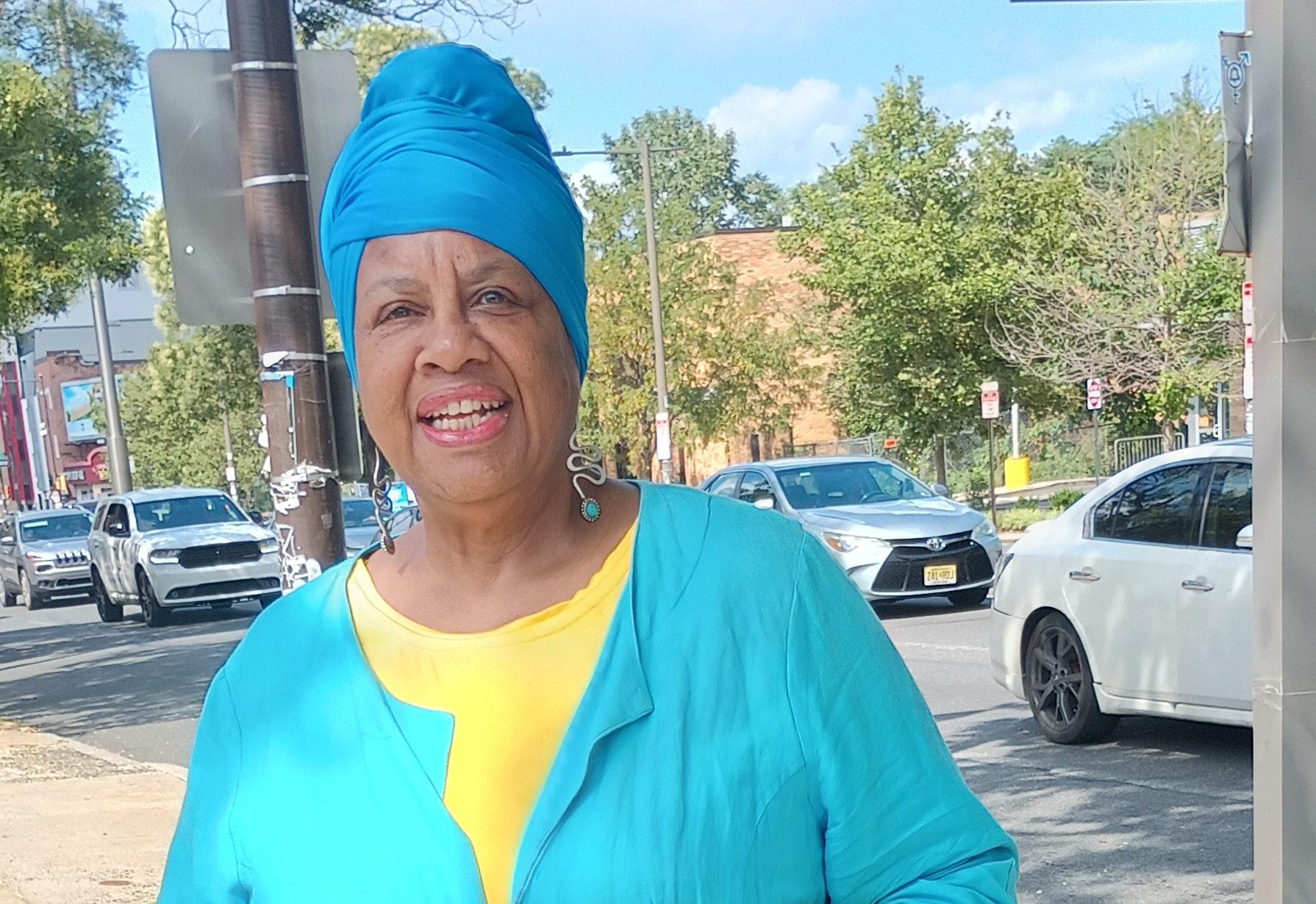
By Jay Nachman
In February, the Philadelphia City Council recognized Judith Robinson “for her work to amplify voices of communities in North Philadelphia for the benefit of the entire City of Philadelphia.”
The accolades are nice, said Robinson, 69. But what she draws satisfaction from is “that we get some knowledge in our heads. We get some facts. And we get the truth about our society. That’s what gets me excited.”
Robinson is a mother of one daughter and a grandmother of two.
She was president of Simon Gratz High School’s class of 1975 and studied design in college. Robinson took a real estate course at Temple University and “never looked back.” In 1992, she started a company providing real
cal landmarks:
• Berean Presbyterian Church, which abolitionist William Still’s daughter, Caroline, helped build.
• Murals of musician Grover Washington Jr. and poet Sonia Sanchez.
• The West Diamond Street home of acclaimed African American artist Henry Ossawa Tanner, which was purchased new in 1872.
• Ebenezer Don Carlos Bassett, who was the U.S. Ambassador to Haiti from 1869-77, also lived in the community on North 29th Street.
architecture of the era, and this is back in 1875 and later, is on Diamond Street,” she said. “These lovely edifices used the best materials, architects and builders. They will never be built again.”
Robinson will do “whatever I need to do to get this information in the heads of people.”
As time goes on, Robinson’s passion for history remains unabated. “The interest has just grown more and more,” she said. “I’m learning so much more about all aspects of history. American history, world history, etc.”
estate services.
In 2008, she had helped start a nonprofit to clean up the neighborhood, Susquehanna Clean Up/ Pick Up, Inc. “We clean and green, and we’re very proud of that,” Robinson said. The organization also brings issues of environmental justice and sustainability to an urban setting.
Always interested in history, Robinson earned a certificate from the Foundation for Architecture in 2000. This certification qualified her as a tour guide.
She now leads a tourism and tour guide research company, called North to the World. Robinson researches nuggets of North Philadelphia history through deeds, wills, maps and other documents. This information helps showcase the treasure trove of history in North Philadelphia. The area includes many histori-
Georgie Woods Way is named after the disc jockey known as “the guy with the goods,” Robinson said. “He was a promoter at the historic Uptown Theater and was so instrumental in all of the great shows at the theater. And he helped raise money for different organizations.”
Cecil B. Moore Avenue’s namesake was a lawyer, politician and civil rights activist. He served as president of the Philadelphia NAACP chapter and as a Philadelphia City Council member.
Diamond Street was designated as Philadelphia’s first historic district corridor in 1986 by the Philadelphia Historic Commission. The employee who helped create the historic designation said that the corridor rivals the architecture of Rittenhouse Square, according to Robinson. “Some of the best
Robinson also uses her real estate background to help clear up tangled titles. This refers to the situation when a person lives in a home they own (or have a right to own), but their name is not on the deed.
“This is really more of a community love,” Robinson said. “Tangled titles are very prevalent in the African American community. I see how my community is losing so much real estate based on the lack of having a title in their name,”
Robinson has blossomed in several careers throughout her life. She said: “I’m kind of (juggling) three or four balls in the air, and I really enjoy it.”
Jay Nachman is a freelance writer in Philadelphia who tells stories for a variety of clients.
Historian and tour guide Judith Robinson, 69, shares the stories of her community.
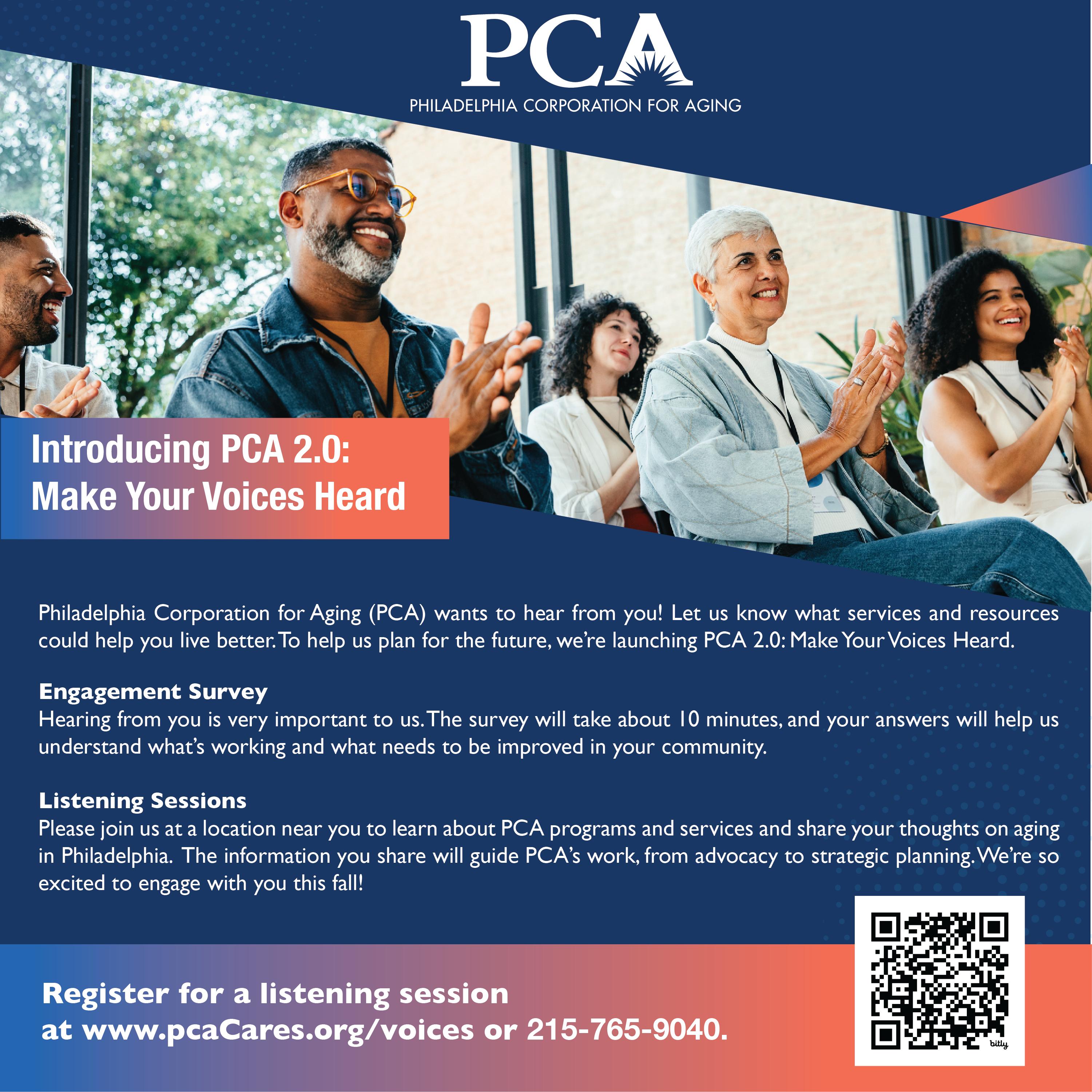
Philadelphia streamlines application process for real estate tax assistance programs
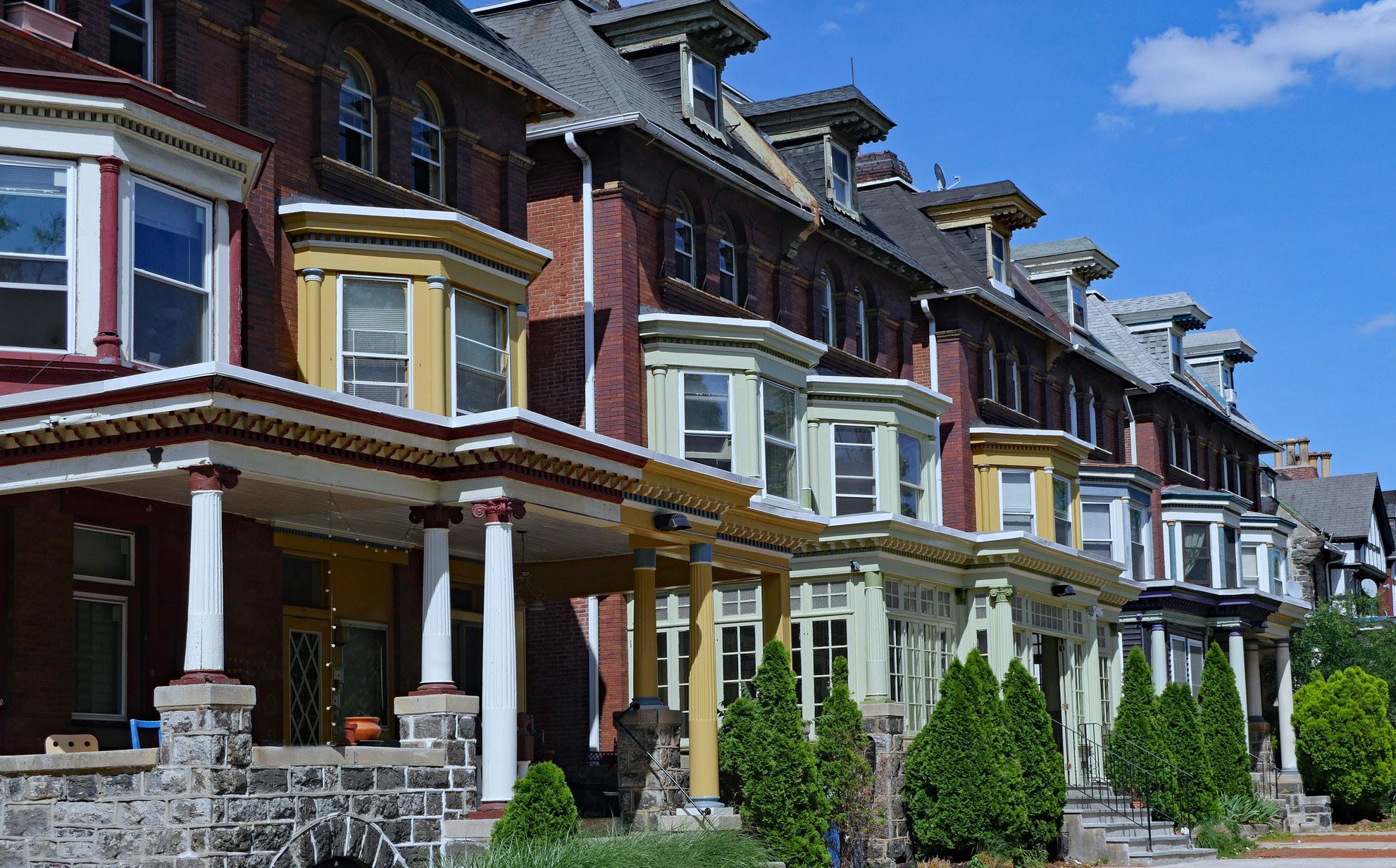
The City of Philadelphia has created a single application for its five real estate tax assistance programs. This will make it easier for homeowners to apply for all programs that can reduce their Philadelphia real estate tax bill.
The project combines the applications for the following real estate assistance programs:
• Homestead Exemption.
• Longtime Owner Occupants Program (LOOP).
• Senior and Low-Income Real Estate Tax Freeze programs.
• Real Estate Tax Installment Plan.
Each of these programs has dif-
ferent eligibility requirements, due dates and savings. The combined Real Estate Tax assistance application helps residents easily identify the programs for which they qualify. It also removes barriers to obtaining tax relief.
Philadelphia homeowners can find the application by searching for their property address on the Property Panel of the Philadelphia Tax Center at tax-services.phila. gov. The Tax Center is accessible on mobile devices and tablets. It is available in English and Spanish.
“By combining these applications into one, we’re making it easier for homeowners to get the tax relief they are entitled to,” said Kathleen McColgan, Philadelphia revenue commissioner. “We know nearly 80% of homeowners
zen based on the most recent qualifying year, starting in 2024. Proof of income, identity and residence is required. Learn more at phila. gov/tax-freeze.
Senior Citizen Tax Freeze –
Homeowners save by paying the same amount in taxes every year. For those eligible between 2018 and now, the amount of taxes will be frozen at the lowest amount from the first year eligible. Proof of age and income is required. Learn more at phila.gov/tax-freeze.
are taking advantage of real estate programs for which they are eligible. Along with our extensive and ongoing outreach efforts to inform taxpayers, which include advertising, letters and door-to-door outreach, creating a more streamlined application process will improve participation and reduce that gap.”
Philadelphia’s real estate tax assistance programs explained Homestead Exemption – Reduces the home’s assessed value by $100,000, which also reduces the tax bill. There are no age or income requirements. Learn more at phila.gov/homestead.
Low-Income Tax Freeze –
Homeowners save by paying the same amount in taxes every year. The real estate tax bill can be fro-
Longtime Owner Occupants Program (LOOP) – Caps the home’s assessed value and limits future tax increases, which will save money over time. Homeowners must have experienced significant assessment increases, owned the home for at least 10 years and meet income limits. Learn more at phila.gov/loop.
Real Estate Tax Installment
Payment Agreement – Pay current taxes in installments, instead of in one full payment. All older adults qualify regardless of income. Income limits apply to applicants younger than 65. Proof of age is required for all applicants. Proof of income for those under 65 is required. Learn more at phila.gov/revenue/installment-plan.
For Philadelphia real estate tax information, call 215-686-6442, visit https://tax-services.phila.gov or email revenue@phila.gov.
Source: City of Philadelphia
Spider and varicose veins explained
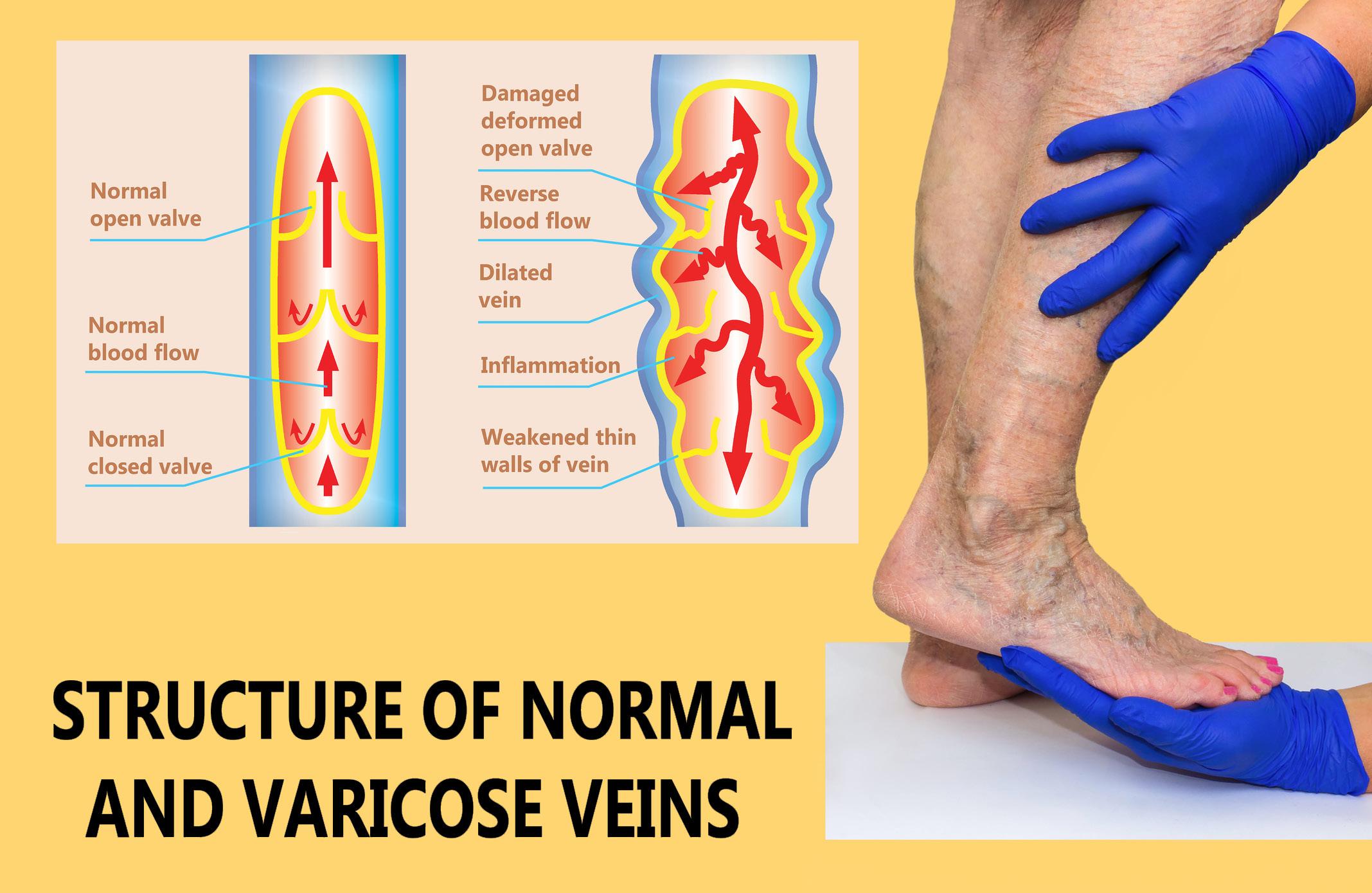
By Jay Nachman
Varicose veins and spider veins generally do not present a health risk. While the appearance may be concerning, they are not typically harmful. Here’s what to do if these veins are bothering or worrying you.
Varicose veins are enlarged, visible veins underneath the skin. They are usually blueish or purple in color. Spider veins form a web of little veins. The difference in categorizing them is their size.
“They are more of a cosmetic concern and usually do not correlate with any other medical conditions,” said Dr. Michael J. Nooromid, a vascular surgeon at Jefferson Health.
Arteries bring oxygenated blood flow from the heart to the rest of the body, Dr. Nooromid said. Veins bring the deoxygenated blood back to the heart then to
the lungs. The oxygenated blood then travels back through the heart to be sent back out to the body. Veins and arteries are both types of blood vessels, but they operate independently of each other.
“Just because you have a problem with your arteries, does not mean you have a problem with your veins,” Dr. Nooromid said.
“And just because you have a problem with your veins doesn’t mean you have a problem with your arteries.”
When patients come to see Dr. Nooromid about varicose veins, often they are concerned about blood flow to the legs. This is the most common place to see varicose veins. In almost all instances, varicose veins do not affect the heart and blood flow to the rest of the body.
Varicose veins are usually genetic in nature. They can also be a result of hormonal changes. Women
often get them when pregnant or when on hormone therapy. Another cause of varicose veins is being overweight.
“As we age, varicose veins can continue to get bigger and more apparent,” Dr. Nooromid said. “The people we see a lot are patients who are on their feet for the majority of the day. Restaurant servers, cooks and people who are working in sales. Any kind of active job.”
While varicose veins do not generally correlate to a medical condition, it is important to see a doctor if a person has concerns. “Just to make sure everything else is okay,” Dr. Nooromid said.
Varicose veins that are painful or growing should be evaluated by a specialist. As a worst-case scenario, it could be a sign of phlebitis, or inflammation of a vein. This is usually manifested by swelling, redness and pain in the area of a varicose vein. Sometimes, varicose veins can develop because of previous deep veinous thrombosis. This is a condition where a blood clot forms in a deep vein, usually in the legs.
An ultrasound can detect underlying problems associated with varicose veins. This can include obstructions or problems with valves in the veins.
“Vascular surgeons are the med-
ical and surgical specialists of the entire scope of vascular problems,” Dr. Nooromid said. “We really treat a diverse spectrum of conditions. We have the tools to offer thorough treatment options and give the best tailored treatment plans for our patients.”
The two ways to treat varicose veins are medical management or surgical management.
Dr. Nooromid always tries to treat varicose veins with medical management first. One such treatment is wearing compression socks. This garment squeezes the legs to prevent swelling. Patients should try to avoid standing for long periods of time and elevate their legs when possible.
If symptoms persist, surgery may be recommended. These include burning or itching in the lower legs, swelling, or cramping, Spider veins can be treated with injections of medication or with laser therapy. Minimally invasive surgery can remove the veins.
“Vascular surgery is constantly innovating in terms of treatments,” Dr. Nooromid said. “And the technologies we have available are always improving to continue to treat our patients with minimally invasive procedures, So they don’t have to undergo significant recoveries.”
Jay Nachman is a freelance writer in Philadelphia who tells stories for a variety of clients.
Language translation resources help older adults communicate

By Mary Anna Rodabaugh
Nearly 20% of Philadelphians, aged 65-plus, speak a language other than English, according to the American Community Survey. These older adults may face language barriers to daily tasks. These barriers can affect tasks such as accessing health care, managing finances, or filing for insurance.
Older adults who speak a language other than English may also struggle to communicate with younger family members who are more fluent in English. This can include younger family members whose primary language is English.
There are language resources available to help older adults communicate and learn.
PCA Language Lines
Philadelphia Corporation for
of use, and availability across many languages.
Translators for Elders (TFE)
TFE breaks down language barriers for older adults. The nonprofit organization enhances the lives of older adults through improved communication. TFE satisfies the need for language services.
What started as a class project grew into a national effort to support older adults. TFE provides language, translation and interpretation services for older adults and underserved communities.
translates written text in real time. The app is free to download, but some features—like unlimited translations or offline mode—require a paid subscription. Just scan the words with the camera. TextGrabber can translate more than 100 languages. It can read street signs, documents and more. You can find TextGrabber in your mobile device’s app store.
Zoom
Aging (PCA) provides free interpretation to help older adults access its services. PCA manages five separate foreign-language telephone lines:
• Chinese – 215-399-4944
• Khmer (Cambodia) – 215399-4940
• Korean – 215-399-4941
• Hindi – 215-399-4943
• Vietnamese – 215-399-4942
Callers to the PCA Helpline (215-765-9040) can get interpretation in any language through an on-call language interpreter. PCA’s website (www.pcaCares. org) also provides automatic translation in nine languages with the click of a button.
In addition to PCA’s services, there are several tools and apps that can help older adults overcome language barriers in daily life. The tools listed here were selected for their accessibility, ease
TFE receives translation and interpretation requests online. The requests are fulfilled by expert translators and volunteers.
TFE offers translation services in English, Spanish, Chinese, French, German and Korean. To submit a request or to learn more, visit https://TranslatorsForElders. org.
Google Translate
Google offers a free service that instantly translates words, phrases and webpages. Google translates between English and more than 100 other languages. You can even translate by voice on a computer or smartphone. Click on the microphone icon, then spoken words will be translated in real time. This service works instantly, providing older adults with a quick resource when needed. For more information, visit https://translate.google. com.
TextGrabber
This smartphone application
Zoom is video chat software. It can also be used for work meetings, online classes and communications with loved ones who live far away. Zoom is different from other video chat applications. The person who initiates the call (“host”) can apply subtitles to the meeting. This allows participants to see the conversation translated in real time. To enable this feature, follow the instructions below:
1. Sign into Zoom.
2. Select Settings.
3. Click the Meeting tab.
4. Under In Meeting (Advanced), click the Language Interpretation toggle to enable or disable it.
For more information or to open a Zoom account, visit www.zoom. us.
With these tools and PCA’s services, older adults can overcome language barriers and stay connected, informed, and empowered every day.
Mary Anna Rodabaugh is a writer, editor and writing coach.
Caregiver stress: Tips for taking care of yourself
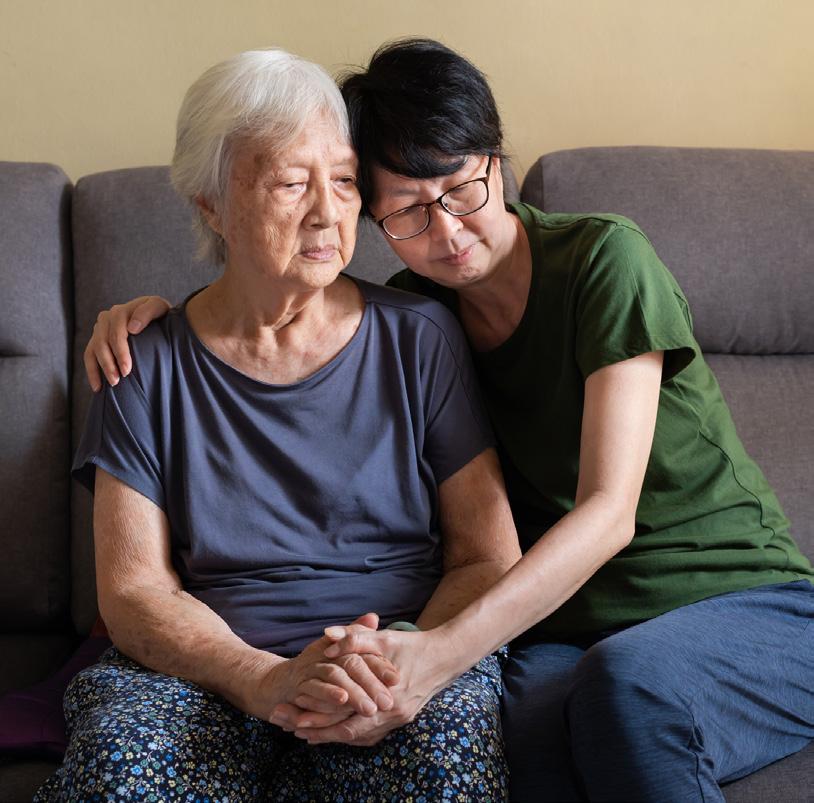
Caring for a loved one strains even the most resilient people. If you’re a caregiver, take steps to preserve your own health and well-being. The demands of caregiving can cause emotional and physical stress. Caregiver stress can put caregivers at risk of changes in their own health. Factors that can increase caregiver stress include:
• Caring for a spouse.
• Living with the person who needs care.
• Spending many hours caregiving.
• Feeling alone, helpless or depressed.
• Having money problems.
• Having little or no guidance from health care professionals.
• Having no choice about being a caregiver.
• Not having good coping or problem-solving skills.
• Feeling the need to give care at all times.
Signs of caregiver stress
Caregivers may be so focused on
their loved one that they don’t see how caregiving affects their own health and well-being. The signs of caregiver stress include:
• Feeling burdened or worrying all the time.
• Feeling tired often.
• Sleeping too much or not enough.
• Gaining or losing weight.
• Becoming easily frustrated or angry.
• Losing interest in activities you used to enjoy.
• Having frequent headaches, body pains or health problems.
• Misusing alcohol or drugs, including prescription medicines.
• Missing your own medical appointments.
Tips to manage caregiver stress
The emotional and physical demands of caregiving can strain even the strongest person. Many resources and tools can help caregivers care for both a loved one and themselves. To help manage caregiver stress:
• Ask for and accept help.
• Focus on what you can do.
• Set goals you can reach.
• Contact Philadelphia Corporation for Aging’s Caregiver Support Program at 215-765-9040.
• Join a caregiver support group.
• Seek social support from family and friends.
• Take care of your health.
• See your health care professional regularly.
• Use respite care.
Mindful
Source: Mayo Clinic
CREATORS NEWS SERVICE
By Neil R. Manausa
